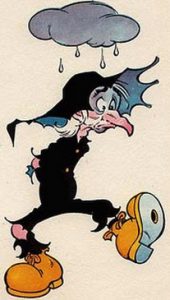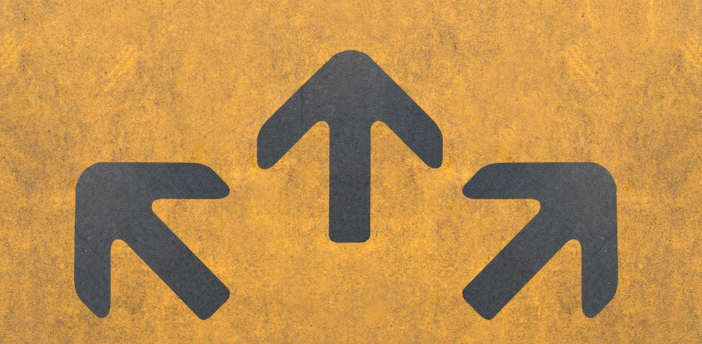Every day is filled with choices, from the moment we wake up to the moment we sleep again.
One study estimated that we make as many as 35,000 choices every day! I choose to think it is lower than that, but the number is high.
Out of all those choices, some are important and some are less important. Some choices have to be made immediately. (Duck!) Some choices come with a great deal of time for deliberation.
 Way back in 1999 a character named Morpheus offered a choice to a character named Neo. If you have seen The Matrix you probably know the scene. Morpheus (Laurence Fishburne) shows Neo (Keanu Reeves) a blue pill and a red pill.
Way back in 1999 a character named Morpheus offered a choice to a character named Neo. If you have seen The Matrix you probably know the scene. Morpheus (Laurence Fishburne) shows Neo (Keanu Reeves) a blue pill and a red pill.
He explains that the blue pill will send him back to his old life and the red pill will reveal the world as it really is.
To keep the movie’s software theme, it was a binary choice.
How would you have made that choice? And if you chose to “leave things as they are,” would you ever get the choice again?
Choices are not made in a vacuum
Not long before Thomas Anderson (Neo is his hacker name) is offered the pills, he is given another choice.
Late for work, his boss says to him, “The time has come to make a choice, Mr. Anderson. Either you choose to be at your desk on time from this day forward, or you choose to find yourself another job.”
Soon thereafter Anderson is arrested for his hacking crimes, and in interrogation is given another choice. Cooperate with the authorities and have his record wiped clean, or…. Actually there is no choice, but it is becoming clear who Neo trusts.
When he finally gets to the “blue pill red pill” choice, his decision has already been made.
A lot of our choices are made the same way, incrementally then suddenly. There are many factors at work, of course, and a lot of those, according to psychologists, are internal.
I’ll use Neo as one final illustration of that, and then we’ll get into our own lives.
When Neo first meets him, Morpheus asks, “Do you believe in fate?”
When Neo says “No,” Morpheus asks “Why not?”
“Because I don’t like the idea that I’m not in control of my life.”
Do you even have a choice?
The term “locus of control” is what Neo was talking about. Wikipedia explains it like this:
A person’s “locus” (Latin for “place” or “location”) is conceptualized as internal (a belief that one can control one’s own life) or external (a belief that life is controlled by outside factors which the person cannot influence, or that chance or fate controls their lives).
For many readers, that little phrase “outside forces which the person cannot influence” is important. Those are the readers who believe that God is ultimately in control. That is very different, though, than fate.

I happen to be one of those “God is in control” people, and I also believe that God has given us the ability to make choices and have some control over our own lives.
Like Neo, I do not believe in fate because my “locus of control” is internal. Joe Btfsplk, “the world’s worst jinx,” could walk right up to me and I’d be fine.
You may believe in fate if luck is part of your vocabulary. “That was lucky!” “It was just bad luck.”
Or, as I’ve heard golfers say when they hit a bad shot and get a good result, “I’d rather be lucky than good.” No, they really wouldn’t, and I hope you wouldn’t either.
Sports psychologists will tell you that all you can control is your own swing. You cannot control the results. But those results, both good and bad, do get our attention.
Controlling our choices
In the same way, we cannot control many of the results in our lives. On the golf course you get a bad bounce now and then and a good bounce now and then. That isn’t luck, it is the way a golf course works. Hit the best shots you can hit.
In life, make the best choices you can make. Often good choices lead to good results, though not always. If your choice involves another person or other people, understand that they are making choices as well.
“Will you marry me?” is an invitation to make a choice. The choices you will face together if the answer is yes are, in total, staggering. Like marriage, many of the choices we make heavily influence our future choices. Make good choices early, and later choices will also tend to be good.
Also remember this: choices often become habits, and habits can be hard to break.
For instance, the choice to go to school was taken away from most children in the U. S. during the pandemic, and many haven’t come back. An AP and Stanford study compared chronic absenteeism from 2018-19 to 2021-22, and it grew in every state in the country. Choosing not to go back is a big part of that.
(Apparently don’t go is an option for “school choice” many politicians haven’t considered.)
Good choices
Here are some practices I’ve found useful in making good choices, offered with the hope that they might help you.
First — especially if you believe in God — you should pray about every important decision, then listen and/or watch for a response. Prayer is dialogue, not monologue.
Second, consult with as many trusted people as you can. Don’t ask them to make your choice for you, but do ask for their insights.
Third, pay attention to circumstances. They can be a very useful guide along the way.
Fourth, make the best choice you can with the information you have available at the time the decision needs to be made. You may never have all the info you want, but use all you have.
Finally, always choose to do good. It will make a world of difference — and a difference in the world.
Do good. It’s in you.

2 Responses
Well stated.
“I can only show you the door. You’re the one that has to walk through it.” – Morpheus
Where does the desire come from to open the door?
Great movie! One of my favorites.
Thanks for the reminder to choose wisely, knowing that God is in ultimate control!
To quote an excellent lyric from an excellent lyricist:
“We move so fast and want so much,
And think we’re in control
But it’s really just illusion
And it melts like summer snow
Because it’s Your world, Father
And we’re thankful that it is
Please help us to remember
When we’re faced with Sudden Spins”